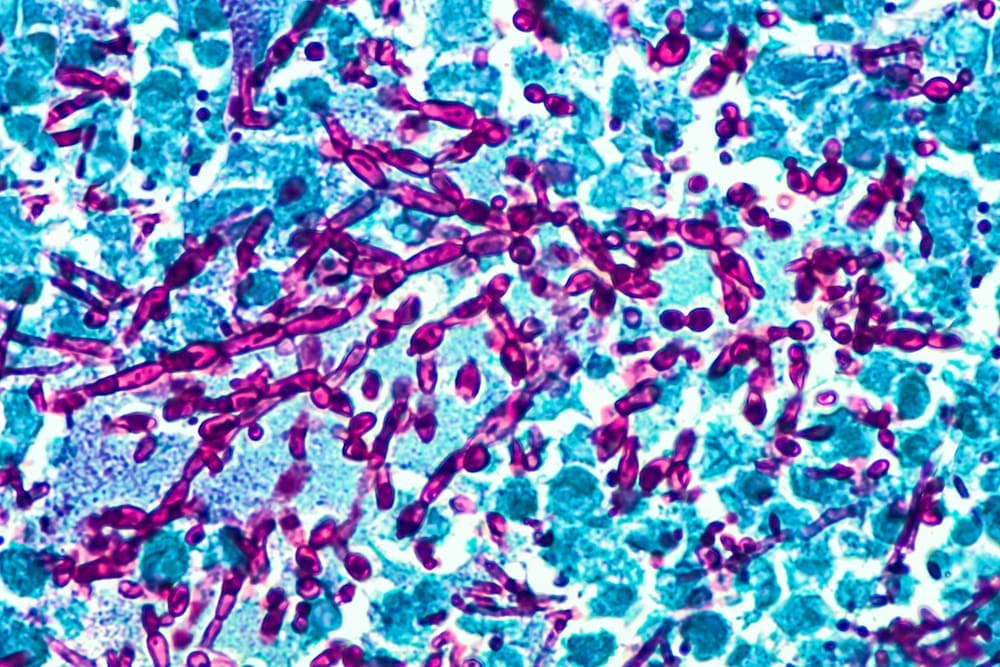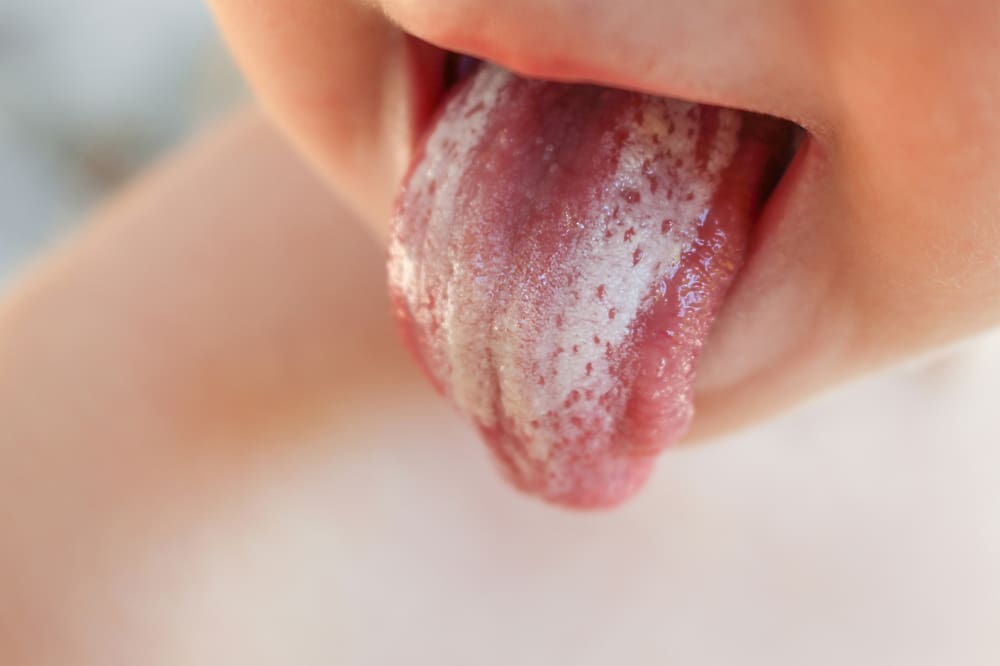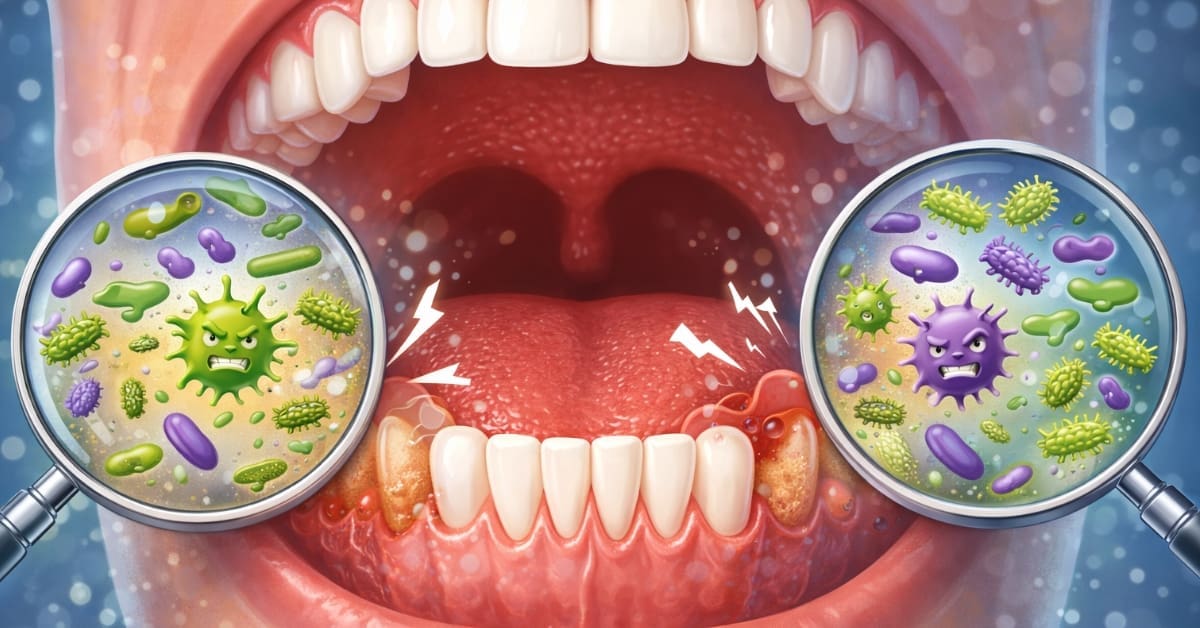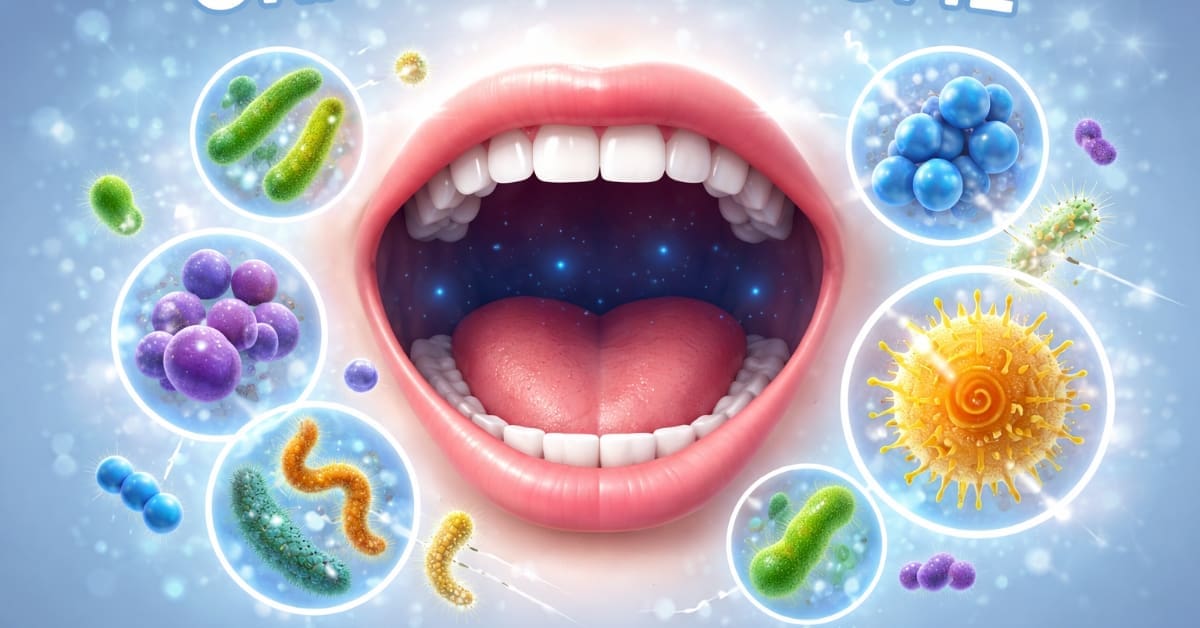Oral Thrush: Symptoms, Causes and Treatment for This Fungal Infection in the Mouth
Oral thrush, or oral candidiasis, is a prevalent fungal infection that impacts the mucous membranes within the mouth. The primary culprit is the Candida albicans fungus, which is naturally present in small quantities in the oral cavity. Nevertheless, specific conditions can trigger an overgrowth of this fungus, manifesting oral thrush. While this condition can affect individuals across all age groups, it tends to be more prevalent in infants, the elderly, and those with compromised immune systems.
Symptoms of Oral Thrush
White Lesions
The hallmark symptom of oral thrush is the presence of white, creamy, or yellowish lesions on the tongue, inner cheeks, roof of the mouth, and sometimes on the gums and tonsils. These lesions may resemble cottage cheese and can be easily wiped off, leaving a red and slightly bleeding surface.
Soreness and Discomfort
Individuals with oral thrush often experience discomfort or soreness in the affected areas. The fungal infection can cause irritation and a burning sensation, making it uncomfortable for the person to eat or swallow.
Altered Taste
Some people may notice a change in taste or experience a persistent metallic taste in their mouth. This can further contribute to a decreased appetite.
Redness and Inflammation
In addition to the white lesions, the surrounding areas may appear red and inflamed. The infection can extend beyond the white patches, affecting the overall health of the oral mucosa.
Cracking and Redness in the Corners of the Mouth
Oral thrush can extend to the corners of the mouth, causing cracking, redness, and, sometimes, small sores. This condition is known as angular cheilitis and often occurs concurrently with oral thrush.
Causes of Oral Thrush
Weakened Immune System
Those with a weakened immune system face heightened susceptibility to oral thrush. Conditions such as HIV/AIDS, diabetes, and cancer, along with treatments like chemotherapy and immunosuppressive medications, can diminish the immune system’s capacity to control the growth of Candida effectively.
Antibiotic Use
The equilibrium of microorganisms in the mouth can be disturbed by broad-spectrum antibiotics. These antibiotics not only eliminate harmful bacteria but also beneficial ones that play a role in regulating Candida growth. This disturbance in balance may result in an excessive proliferation of the fungus.
Steroid Medications
Corticosteroid medications, particularly inhaled steroids, heighten the likelihood of oral thrush development and can establish an environment favorable to fungi’s overgrowth.
Diabetes
People with uncontrolled diabetes, especially those with poorly managed blood sugar levels, are at an increased risk of developing oral thrush. Elevated sugar levels in the saliva provide a favorable environment for Candida growth.
Denture Use
Ill-fitting dentures or inadequate denture hygiene can create conditions that encourage the growth of Candida. The fungus may thrive on the surfaces of dentures and then spread to the oral tissues.
Dry Mouth
Saliva plays a crucial role in controlling the growth of Candida in the mouth. Conditions that lead to dry mouth, such as certain medications or systemic diseases, can increase the risk of oral thrush.

Treatment Options for Oral Thrush
Antifungal Medications
The primary treatment for oral thrush involves the use of antifungal medications. Depending on the severity of the infection, these may be prescribed as oral rinses, lozenges, or systemic medications. Common antifungal agents include nystatin, clotrimazole, and fluconazole.
Proper Oral Hygiene
Maintaining good oral hygiene is critical in managing and preventing oral thrush. Regular brushing of teeth, gums, and tongue, along with proper denture care (if applicable), helps reduce the presence of Candida in the mouth.
Denture Care
For individuals wearing dentures, cleaning them regularly and ensuring a proper fit is essential. Dentures that don’t fit well can create spaces where Candida can thrive.
Managing Underlying Conditions
Addressing underlying medical conditions that contribute to oral thrush is crucial. This may involve managing diabetes, adjusting medications, or addressing immune system issues under healthcare professionals’ guidance.
Probiotics
Several studies propose that probiotics, beneficial bacteria, can potentially prevent and alleviate oral thrush. By aiding in restoring microbial balance in the mouth, probiotics may contribute to managing this condition.
Sugar Control
For individuals with diabetes, maintaining optimal blood sugar levels is essential. Controlling sugar intake in the diet can also contribute to preventing the overgrowth of Candida.
Discontinuing or Adjusting Medications
In cases where medications, such as antibiotics or corticosteroids, contribute to developing oral thrush, healthcare providers may consider adjusting or discontinuing these medications if feasible.
Prevention of Oral Thrush

Good Oral Hygiene Practices
Consistent brushing, flossing, and tongue cleaning sustain a harmonious microbial environment in the mouth, diminishing the likelihood of developing oral thrush.
Denture Hygiene
For those who wear dentures, it is crucial to diligently cleanse and take them out at night, facilitating oral tissues’ ability to breathe.
Regular Dental Check-ups
Routine dental check-ups enable early detection and management of oral health issues, including oral thrush.
Maintain a Healthy Lifestyle
Maintaining a nutritious diet, engaging in regular exercise, and ensuring sufficient sleep all contribute to holistic well-being, fostering a robust immune system that plays a key role in preventing oral thrush.
Limit Sugar Intake
Limiting the intake of beverages and sugary foods contributes to establishing an environment less conducive to Candida’s growth.
Navigating Oral Thrush – Understanding, Treating, and Preventing this Common Fungal Intrusion
Oral thrush is a prevalent fungal infection that can induce discomfort and impact one’s quality of life. A fundamental grasp of its symptoms, causes, and available treatment options is paramount for effective management.
Individuals experiencing symptoms suggestive of oral thrush should promptly seek medical attention for an accurate diagnosis and appropriate treatment. Incorporating preventive measures plays a crucial role in reducing the risk of acquiring this fungal infection in the oral cavity. Always consult with healthcare professionals for personalized advice based on individual health conditions.
Elevate Your Dental Care Experience with Dr. Paul Feldman at Suburban Essex Dental
Discover unparalleled dental care at Suburban Essex Dental under the expertise of Dr. Paul Feldman, a distinguished and Top-rated Dentist in New Jersey. With a commitment to excellence and a reputation for exceptional service, Dr. Feldman and his dedicated team ensure personalized and top-tier dental care for patients in West Orange and beyond.
Don’t compromise on your oral health—schedule an appointment today to experience the expertise and commitment to excellence that makes Suburban Essex Dental a leading choice for comprehensive and compassionate dental care.





